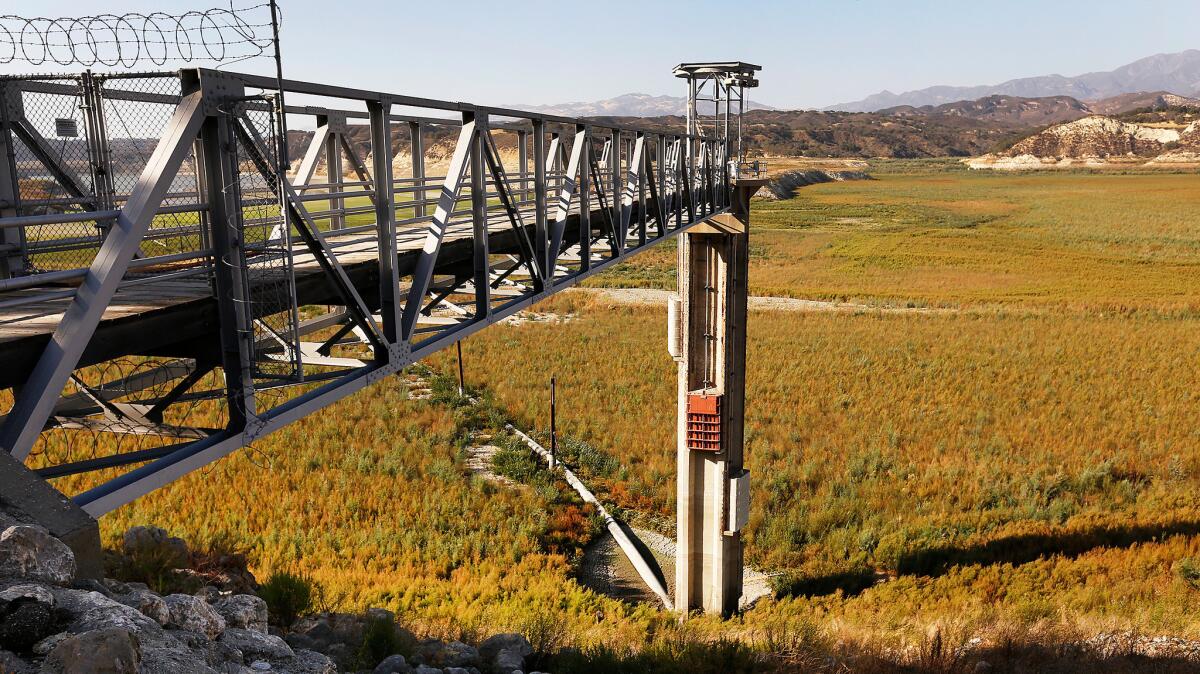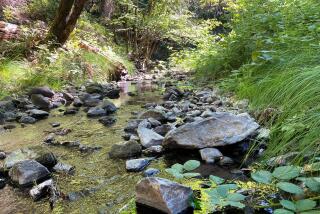‘Law & Order’ creator suffers legal setback in fight to sell Central Coast groundwater

A Santa Barbara County Superior Court judge has dealt a blow to “Law & Order” creator Dick Wolf, tentatively siding with a local water supplier in a contentious, closely watched battle over precious Central Coast groundwater.
Wolf’s 780-acre Slippery Rock Ranch is perched atop an aquifer in the foothills of the Santa Ynez Mountains, and Wolf had sought to extract water from the aquifer and sell it to cities parched by years of drought.
Attorneys for the ranch maintained that its water is derived from “confined and compartmentalized” aquifers that are “materially isolated” from the nearby Goleta Groundwater Basin — and that they could do with the water as they pleased.
Goleta Water District sued to stop any exports, claiming that the ranch’s aquifer is connected to the Goleta Groundwater Basin, which the district owns the rights to. The water district’s attorneys argued the water beneath the ranch seeps out of bedrock formations and flows to the Goleta basin through surface streams and underground channels.
Over the course of a 15-day trial that concluded in October, the two sides engaged in scientific debate about exactly how and where the ranch’s water flows. In his tentative decision filed Thursday, Judge James Herman found that “material” amounts of ranch water contribute to the Goleta Groundwater Basin and help recharge it.
He dismissed the ranch’s claims that a fault completely cut off flow, calling the ranch’s contentions “unpersuasive,” and “not supported by credible evidence.” One of the ranch’s consultants conducted an investigation that was “not thorough,” the judge wrote, later adding that the expert had made “analysis errors.”
But Herman also ruled that the ranch has surplus water available for export. A separate, second phase of the trial will commence over the next several months to determine whether and how the ranch can export that extra water, while still mitigating negative impacts to the basin and the water district.
The judge deferred his decision on whether to issue the water district the injunction it had sought until after the second phase of the trial has been litigated.
“We are pleased in the recognition of Slippery Rock Ranch’s right to private property and the acknowledgement of the surplus water beneath the ranch,” ranch spokesman Cory Black said in a statement. “We will continue to defend the Ranch’s water rights as well as work with the court so we can ensure the water resources remain plentiful for generations to come.”
In a statement released Friday, Goleta Water District officials claimed they had “resoundingly prevailed.”
“Especially here on the Central Coast, we are well aware that water is a limited resource that needs to be managed carefully,” said Goleta Water District board President Rick Merrifield. “We are delighted that the court recognized that the bedrock water is a public resource supplying the district’s customers, and not a commodity to be exploited for private gain.”
The court is expected to finalize its decision in the coming weeks, the water district said.
Twitter: @ByMattStevens
ALSO
Man pronounced dead at the Magic Castle in Hollywood
Developers are finally taking interest in South L.A. Will Measure S kill those dreams?
California officials and the marijuana industry are ready to fight a federal crackdown
More to Read
Sign up for Essential California
The most important California stories and recommendations in your inbox every morning.
You may occasionally receive promotional content from the Los Angeles Times.











